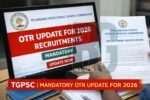The Supreme Court of India has scheduled a hearing on October 28 to consider petitions, including one filed by AIMIM chief Asaduddin Owaisi, seeking an extension of time for the mandatory registration of all Waqf properties under the government’s UMEED portal.
Background & Legal Context
- The Waqf (Amendment) Act, 2025 introduced a clause requiring all Waqf properties across India to be registered digitally via the UMEED (Unified Waqf Management, Empowerment, Efficiency and Development) portal within a six month period.
- This includes “waqf by user” properties those considered Waqf based on long-term religious or charitable use which must now also be registered.
- On September 15, the Supreme Court issued an interim order staying specific provisions of the new Act, including a clause restricting the creation of Waqf by persons who had not practised Islam for at least five years. However, the court declined to stay the entire amendment, allowing most sections to remain in force.
The Petition by Owaisi & Others
- Advocate Nizam Pasha, representing Asaduddin Owaisi, argued before the court that five months of the six month registration window have already elapsed, leaving insufficient time for compliance. He requested an extension to ensure Waqf Boards and trustees across India can properly register all properties.
- The bench, led by Chief Justice B. R. Gavai and Justice K. Vinod Chandran, agreed to list the plea for detailed hearing and combine it with similar petitions filed by other organisations and individuals.
What the Court Has Already Done
- While the court stayed certain restrictive provisions, it upheld the presumption of constitutionality for the rest of the Amendment Act, meaning most of its provisions remain valid until further notice.
- The court has also declined to stay sections dealing with the removal of “waqf by user” recognition, observing that those challenges were not arbitrary on a prima facie basis.
What’s at Stake
- The upcoming hearing on October 28 will be crucial for thousands of Waqf institutions across India.
- Many boards and community organisations have struggled to complete registration due to logistical and technical hurdles.
- If no extension is granted, several unregistered properties could lose legal protection or face administrative penalties.
- The decision will also influence how religious charitable properties are digitally managed and regulated in India going forward.
Summary
The Supreme Court’s hearing on October 28 will determine whether the Waqf community gets more time to meet digital registration requirements under the Waqf (Amendment) Act, 2025. The outcome could shape the legal and administrative framework of Waqf properties nationwide.















